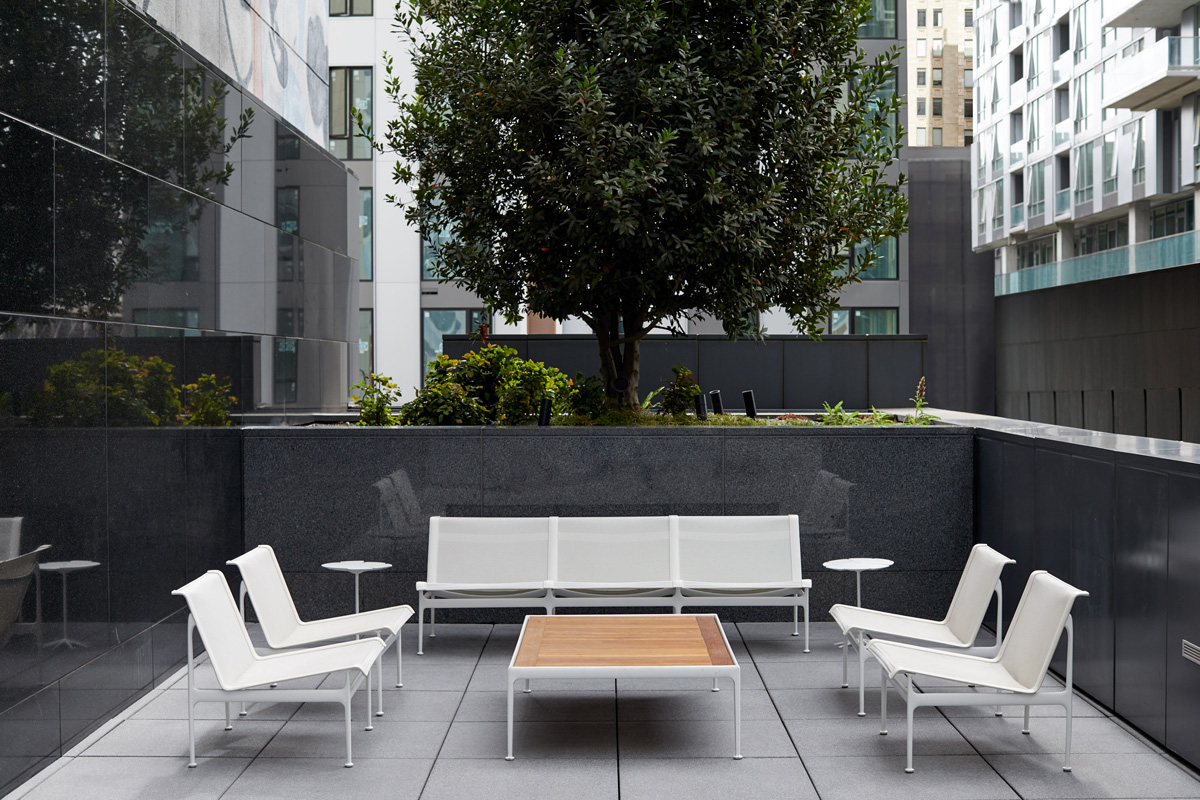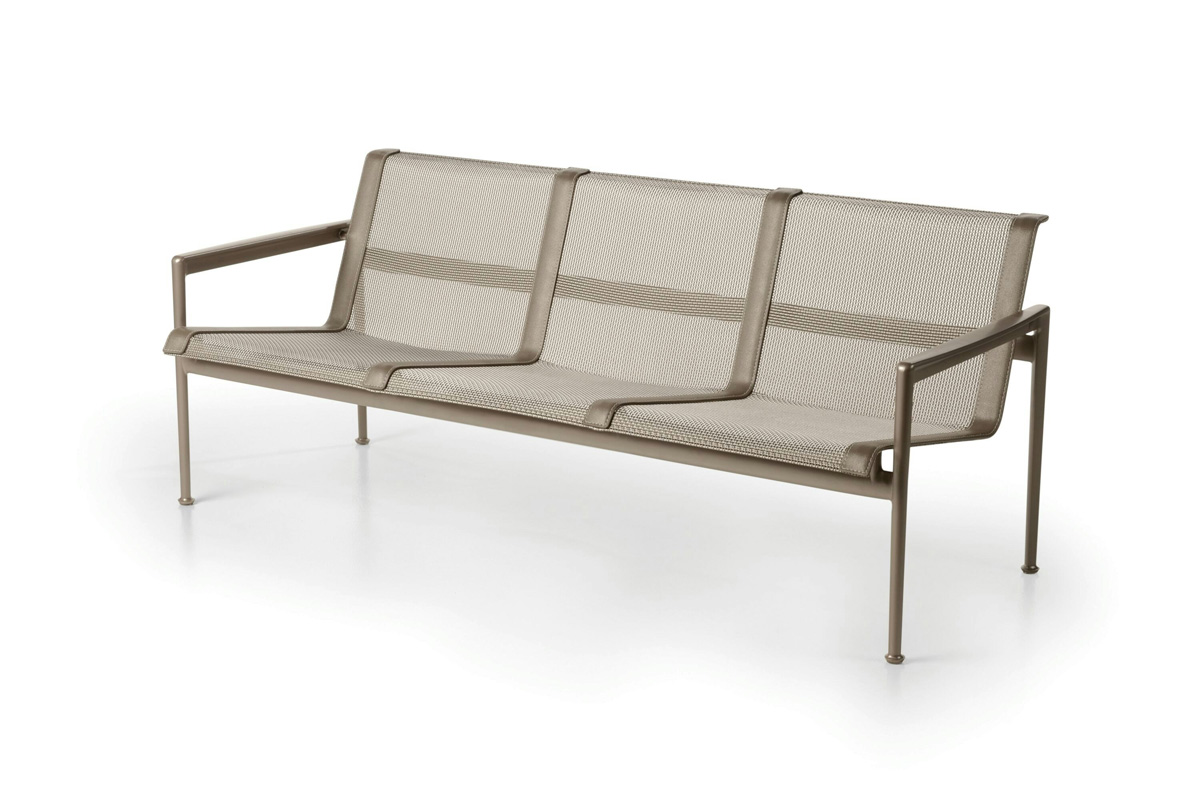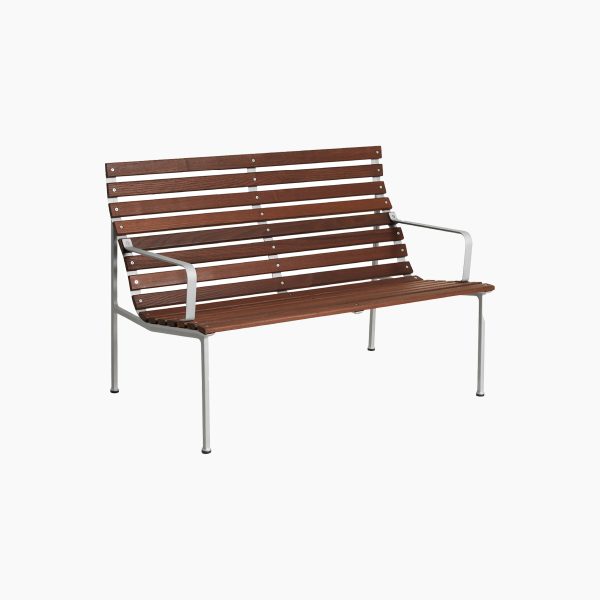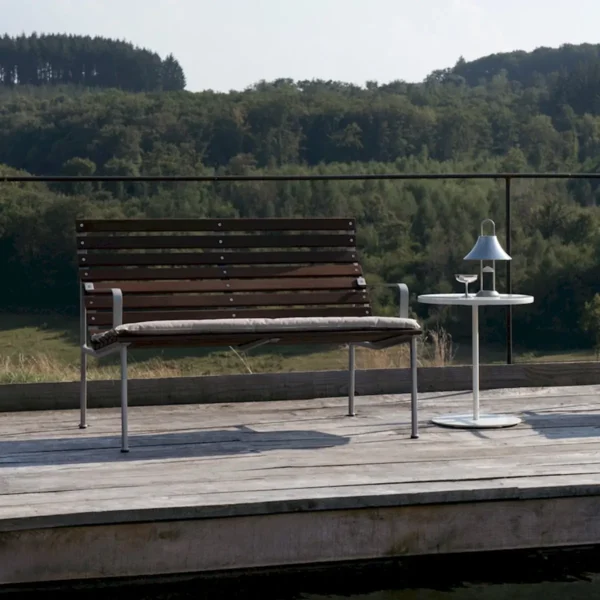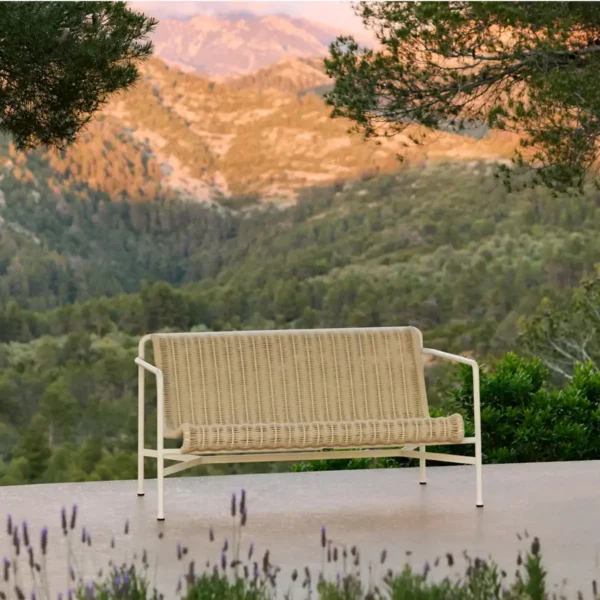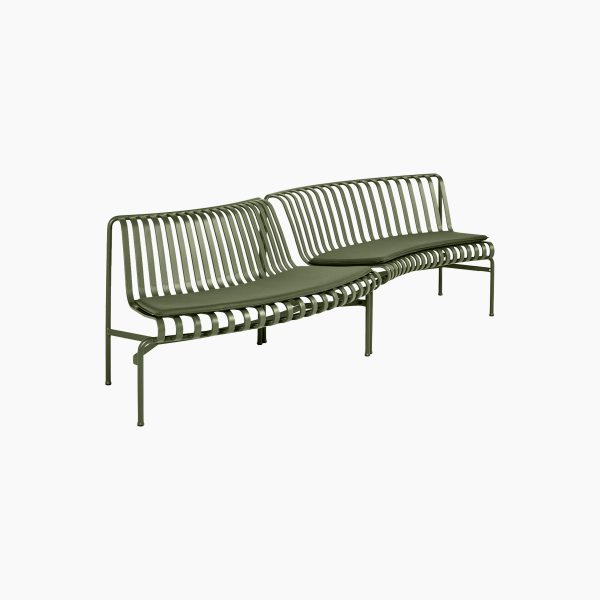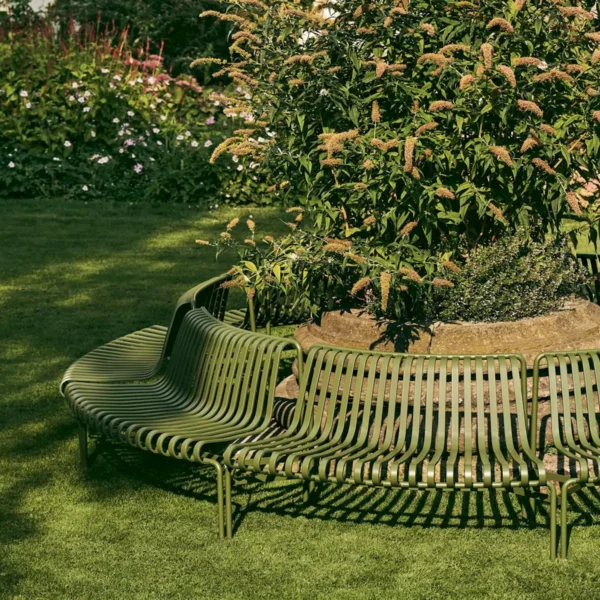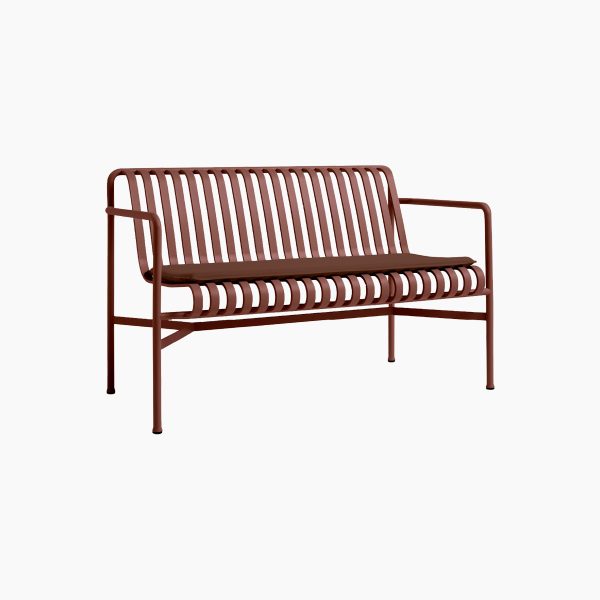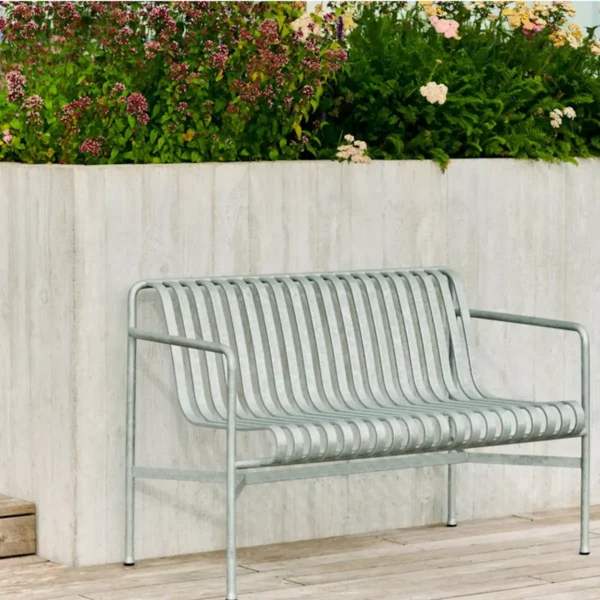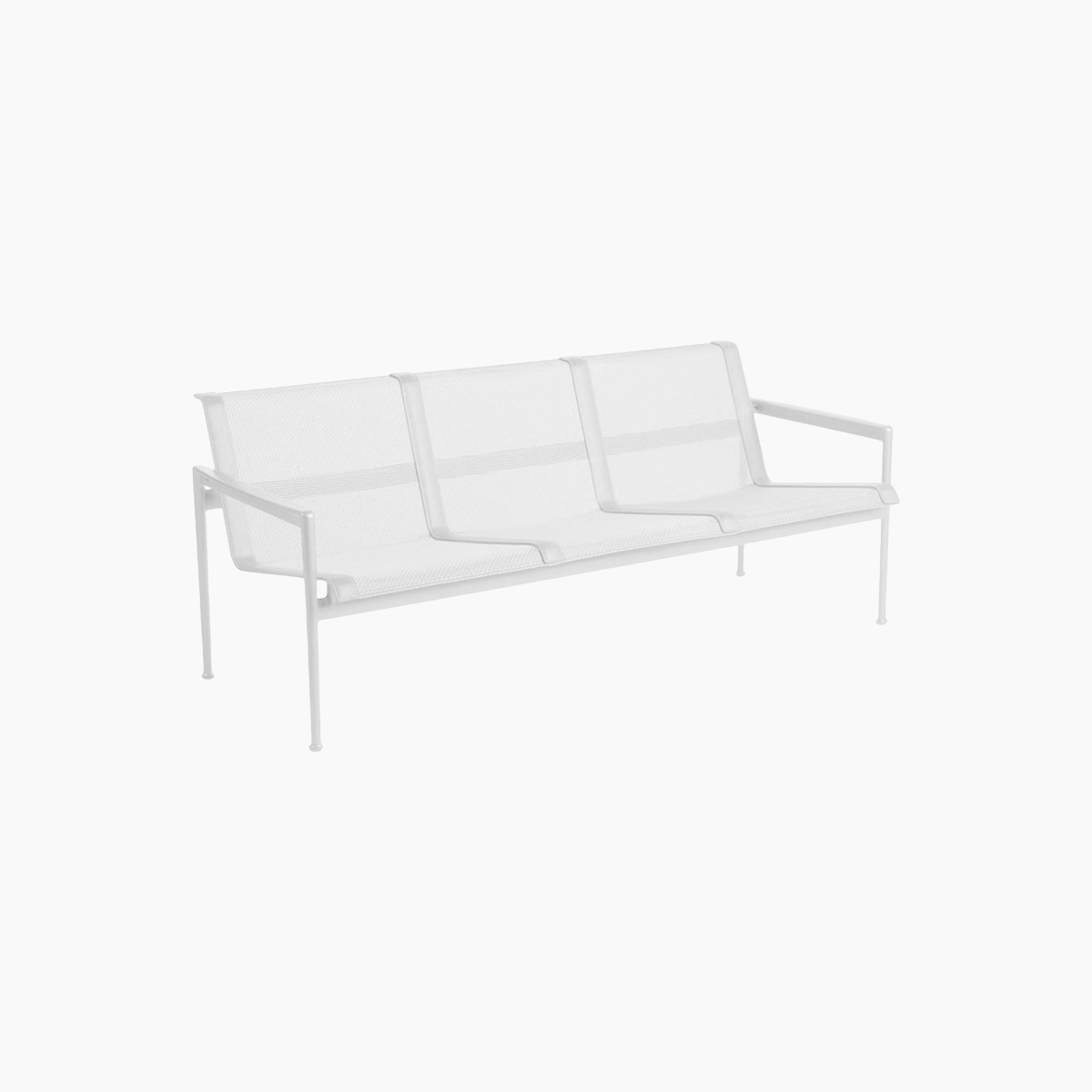
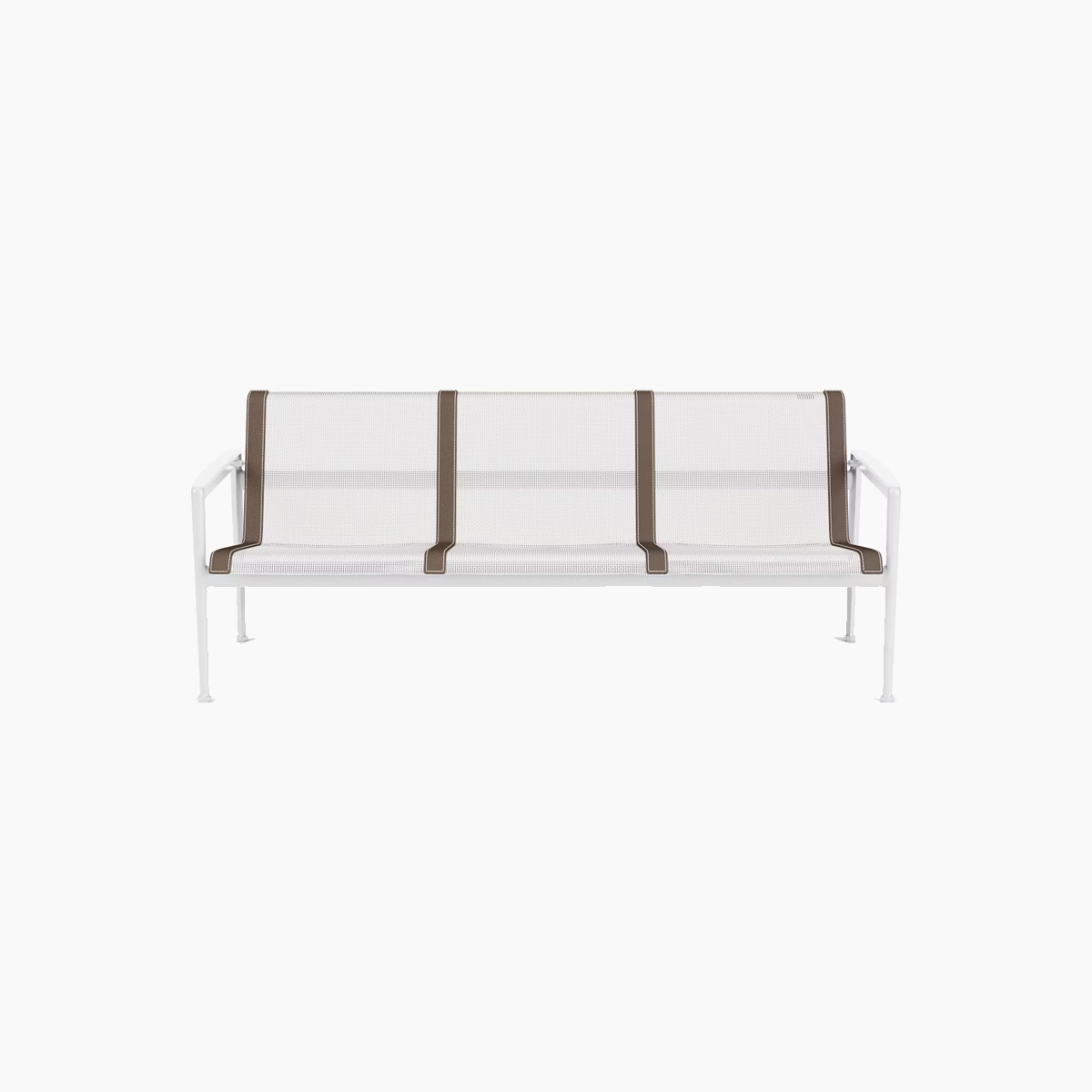
1966 Three Seat Lounge
Summary
The 1966 Collection from Knoll was originally designed by Richard Schultz at the request of Florence Knoll for the outdoor area of her seaside home. The 1966 Three Seat Lounge includes a supportive seat and back made of woven, vinyl coated polyester mesh. Stainless steel arms and supports ensure durability and comfort, while glides make mobility easy. Choose from a variety of colors to customize for your outdoor lounge or hospitality space.
Dimensions
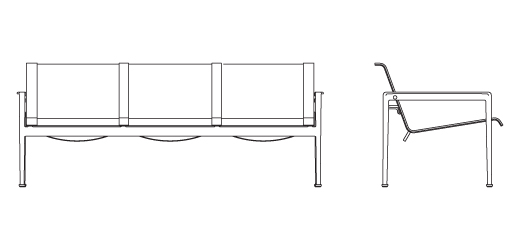
Product story
From designer Richard Schultz: “In October 1962 I began working on an aluminum outdoor group. Florence Knoll moved to Florida and said, ‘You have to make some decent outdoor furniture, something that is made out of materials that won’t rust and corrode.’ That appealed to me, and I started working.
“I experimented with button connectors for the slings, padded slings and plastic beading around the tabletops. Ultimately I devised concealed connectors, which made the chairs more elegant.
“In April 1963 Florence Knoll approved the outdoor program. I had to develop all the patterns for all the cast parts. It took me a long time to develop the collection, as there wasn’t a whole team of people to help me. Details were carefully considered. We spent so much time refining it. That’s why the furniture still looks fresh.
“In March 1966 the furniture was introduced. The furniture didn’t have extraneous curves. Most outdoor furniture those days was designed to look like it was designed before the French Revolution, with stamped out metal, bunches of flowers and leaves; it was very much period looking furniture. This was the first outdoor furniture that enthusiasts of modern design could say, ‘this is a breath of fresh air.'”
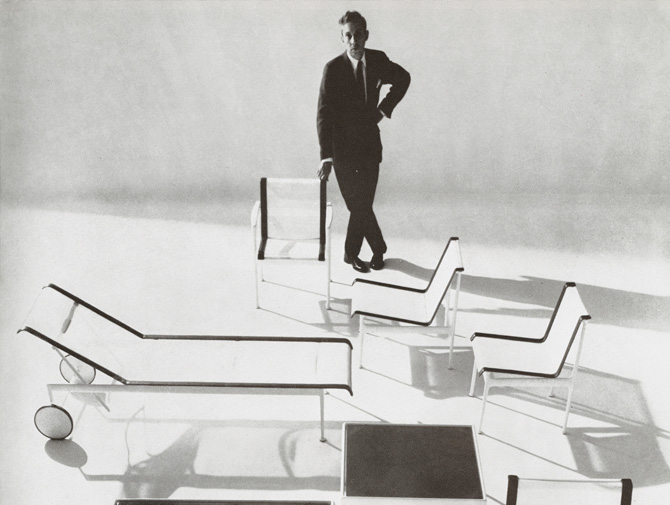

Richard Schultz
Schultz is best known for his outdoor furniture designs. His graceful Petal Table, introduced in 1960, received the design award from Industrial Design magazine. The steel wire-formed 715 Chaise Lounge, which was introduced the following year to complement the Bertoia collection, was selected in 1963 by the Museum of Modern Art for its permanent collection of contemporary furniture. After Florence Knoll moved to a seaside home in Florida, she started sending the design team rusty pieces of furniture, asking them to develop something that could perform in the salty climate. Schultz responded with the aluminum Leisure Collection in 1966.
